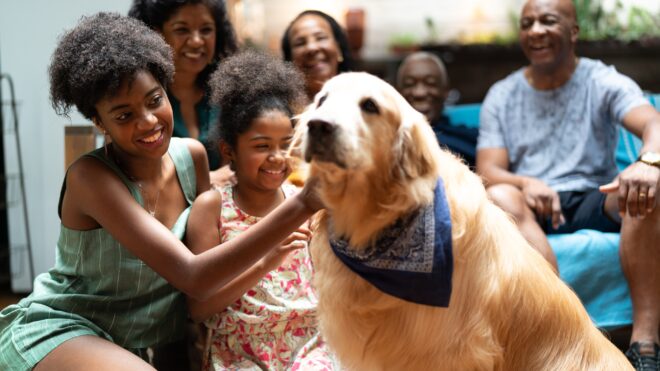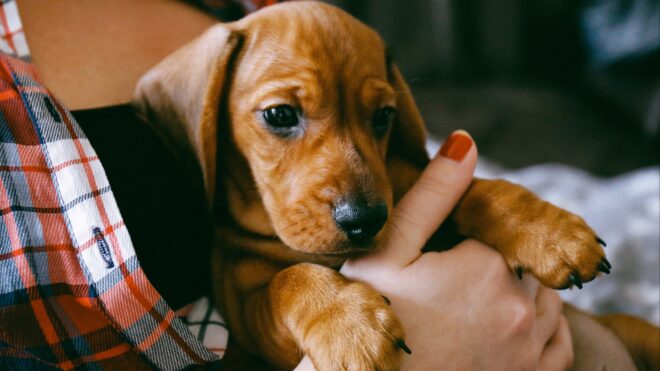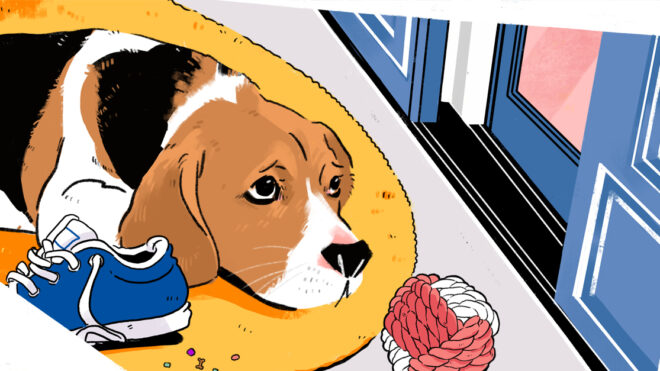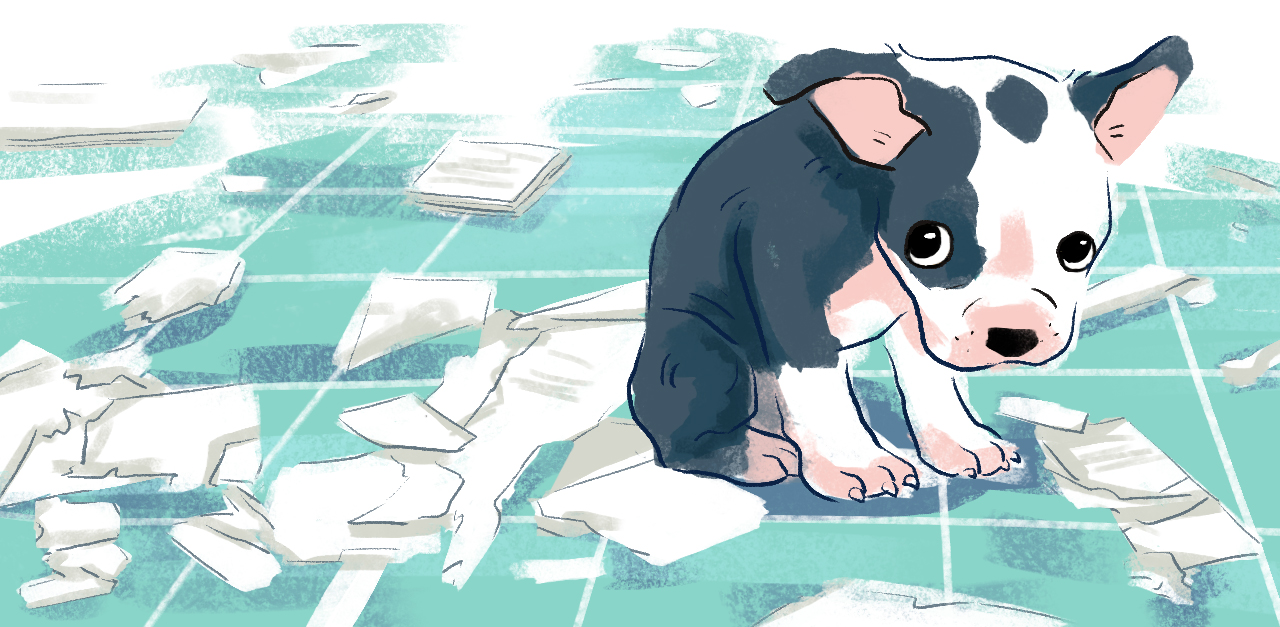
Puppies are challenging in plenty of ways, but nothing quite sinks your heart like that moment that you come home to a completely destroyed bedroom (or bathroom, or closet, or living room, or etc.). The more often your puppy destroys things, the more frustrating it can be.
After you finish crying over your favorite pair of loafers, it’s time to get practical about the situation. The fact is, puppies destroy things for some very concrete reasons — not just to get on your nerves. That means that there are solutions to this problem!
There are a number of reasons your dog might be destroying things. Your puppy may be teething. He might simply be untrained (i.e., he has no idea that your loafers are not a chew toy). He might also be bored or anxious when left home alone.
More from LittleThings: An Animal Communicator Reveals The Enlightening Ways Pets & Humans Are Very Much Alike
Either way, you want to nip this behavior in the bud now, while your puppy is still young. A few training techniques and a healthy dose of patience will curb the destructive chewing altogether. Here’s how to deal if your puppy destroys things!
Why Do Puppies Destroy Things?
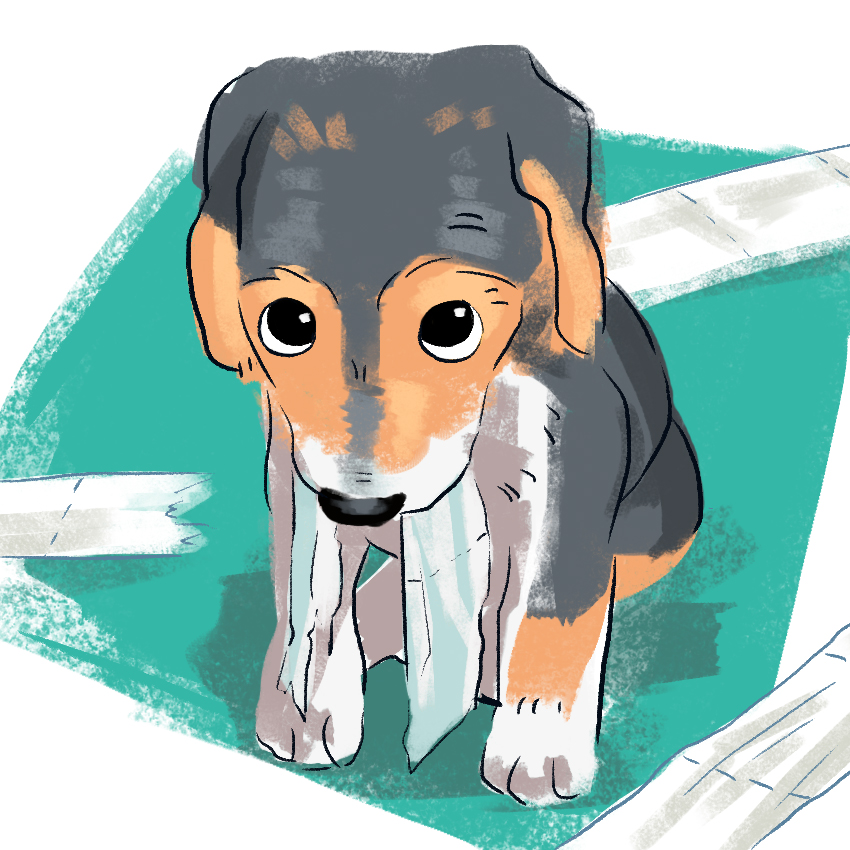
Before you can tackle your puppy’s chewing, you need to get to the root of the problem. There are several different reasons that puppies chew, and each one of them may require a different approach.
First, keep in mind that chewing is a natural behavior for all dogs — puppies included. Dogs love to chew on stuff! It’s when they chew on the wrong stuff that the problem comes in.
In most cases, puppies destroy your things because they haven’t yet been clearly taught what they’re allowed to chew on. Other puppies destructively chew due to boredom, separation anxiety, or the need for attention.
Is Your Puppy Still Teething?
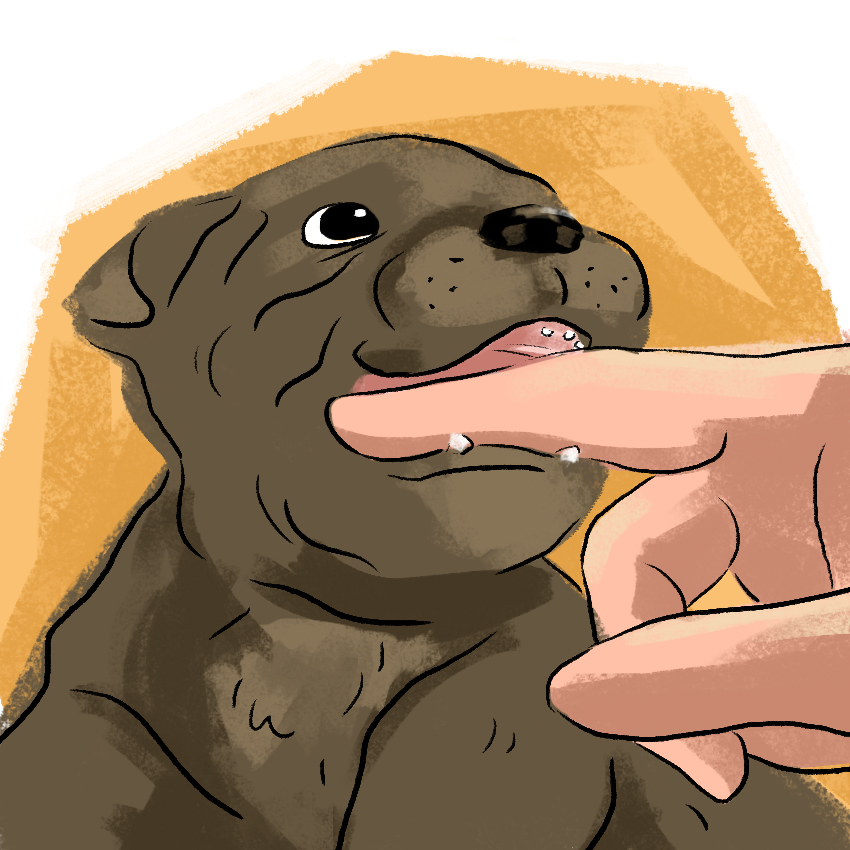
There might be a really simple answer to your problem: Your puppy could be teething! When puppies’ baby teeth are falling out to make room for their adult teeth, they cannot resist the urge to chew, chew, chew to alleviate their sore gums. If that means chewing on the couch, well, so be it.
Puppies’ baby teeth usually start to fall out at about three to four months of age. That process should be complete by the time they’re six months old. If your puppy is teething, you might just have to wait out the clock.
If your puppy isn’t teething anymore, then you have a different issue on your hands.
Solutions Puppy-Proof Your Home
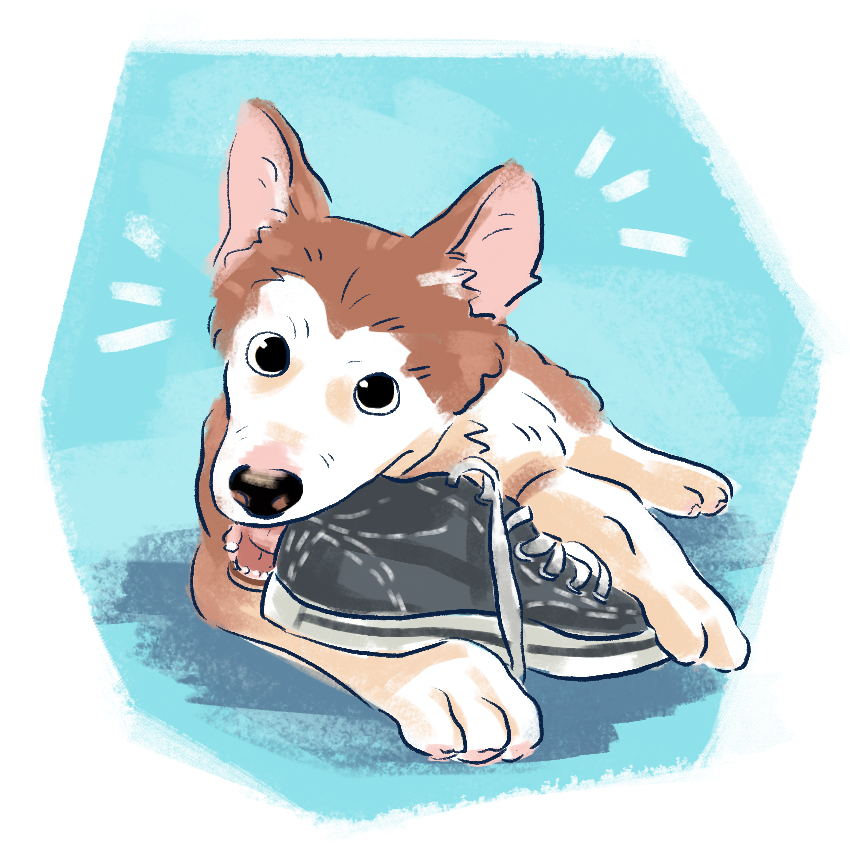
Now, how do you fix this problem before all your shoes are destroyed?
Changing an unwanted behavior in a puppy takes time. It may take days, weeks, or even months to train your puppy to stop destroying your things. With that in mind, it’s a good idea to puppy-proof certain areas of your home while you’re training your dog. This will save your sanity while you fix the actual chewing behavior.
Remove or hide shoes, books, electrical cords, valuable objects, and anything else that you don’t want your puppy’s teeth on. Only allow your puppy in puppy-proofed areas, especially when he can’t be supervised. Set your dog up for success!
Offer Chew Toys
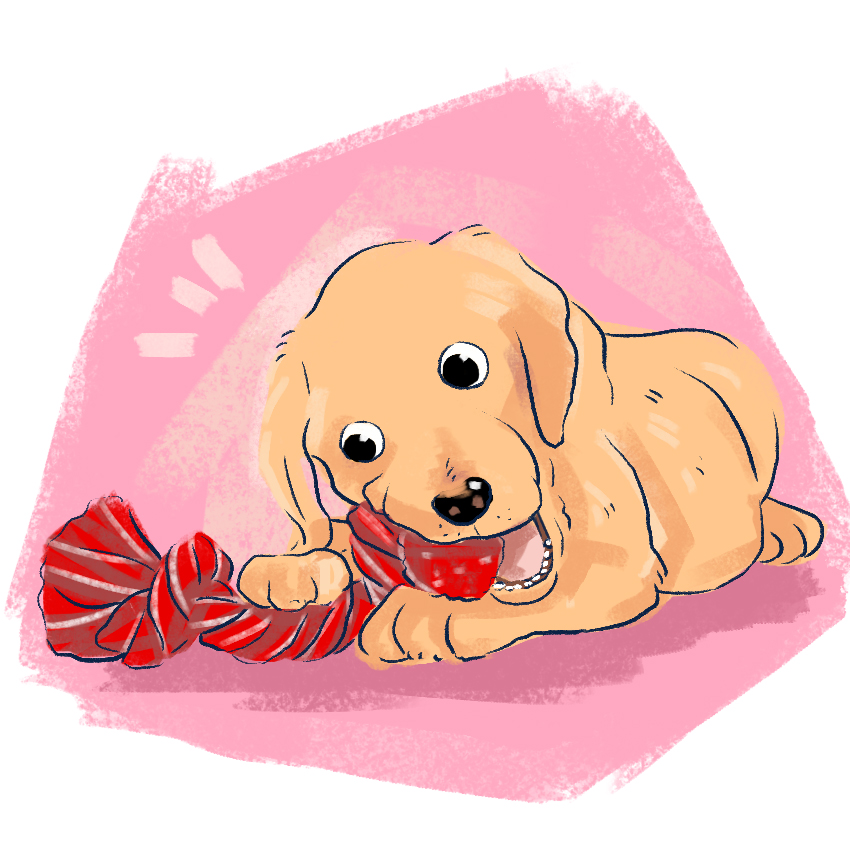
Next, offer plenty of items that you do want your dog to chew on. Chewing is an important and healthy behavior for dogs; it’s good for their teeth, and it provides entertainment and stimulation.
You may have to do some experimenting to figure out what your dog absolutely loves to chew on. Some options include rope toys, edible chews (like pig ears or bully sticks), and inedible chews (like Nylabones or Benebones). If you offer your dog an edible chew toy, supervise him to make sure that he does not splinter it or choke.
If your dog is teething, look for special chew toys just for teething puppies, which help to relieve sore gums. A wet washcloth, popped into the freezer first, can also work.
Offer Toy Variety
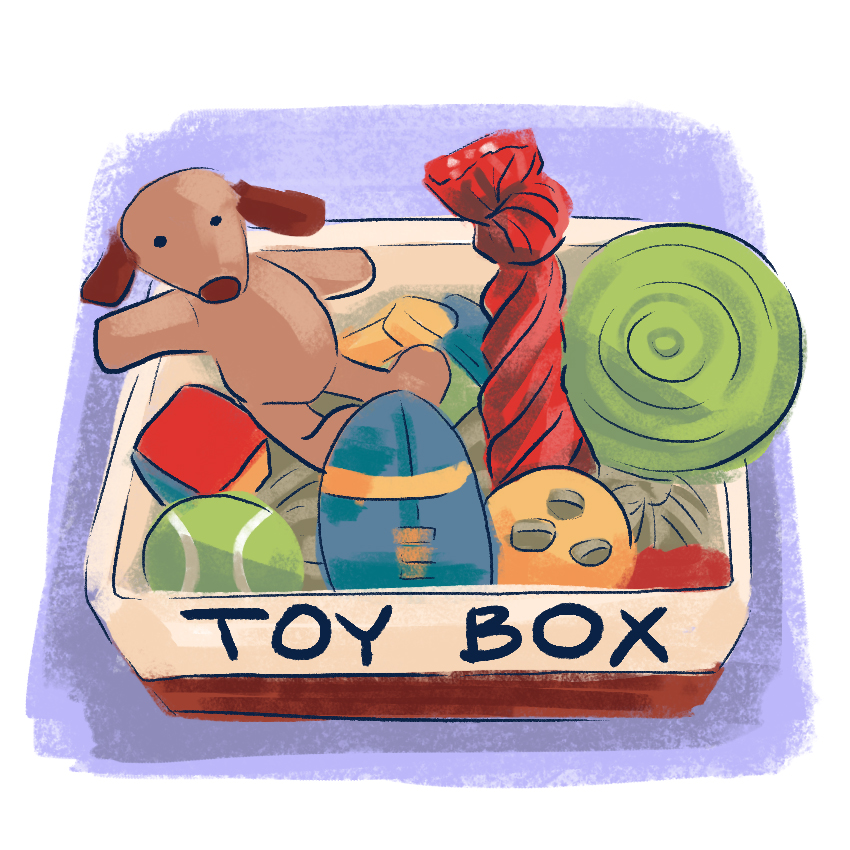
You should also have a few different types of toys in your puppy’s toy box: rope, ball, bone, Frisbee, stuffed animal, and so on. Switch out your puppy’s toys regularly. This is particularly helpful if you’re dealing with a puppy who chews the wrong items simply because he’s bored. The more ways that you can keep your puppy’s attention, the better.
Similarly, you may want to offer toys that actively keep your puppy engaged. Treat-stuffed chew toys, like Kongs, are popular for this reason.
Provide Plenty Of Exercise
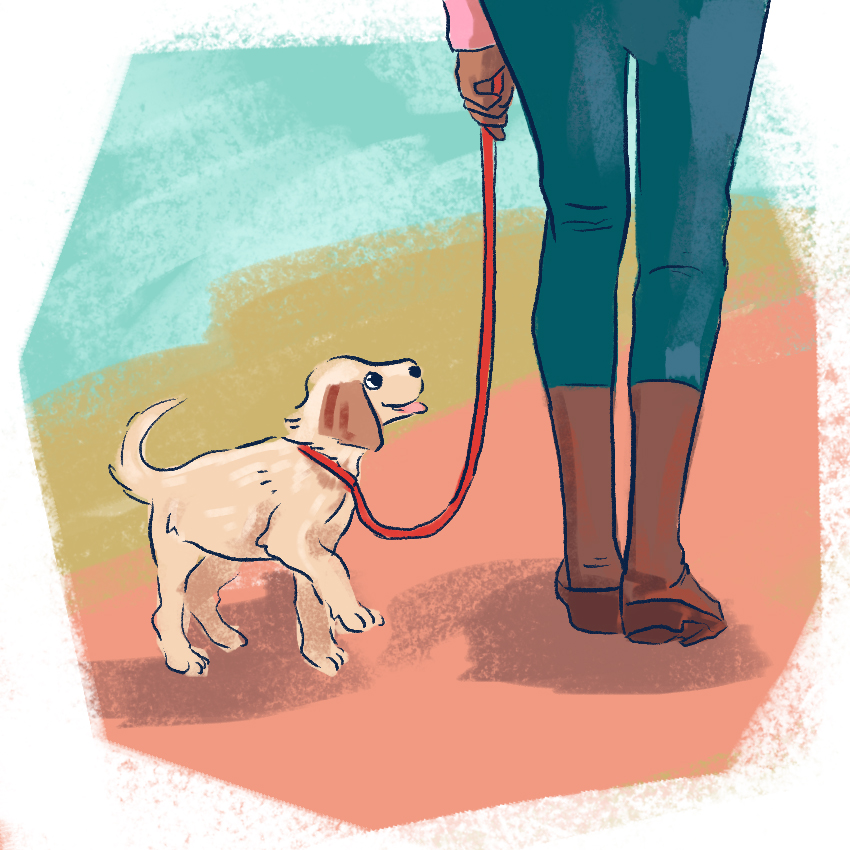
Regular physical exercise is another way to alleviate boredom and anxiety in your puppy. There’s a common saying: “A tired dog is a good dog!”
Try increasing your puppy’s daily exercise to tire him out. You can take him on longer walks, play fetch, take him to a dog park, or drop him off at doggie daycare a couple times a week.
Socialize Your Puppy
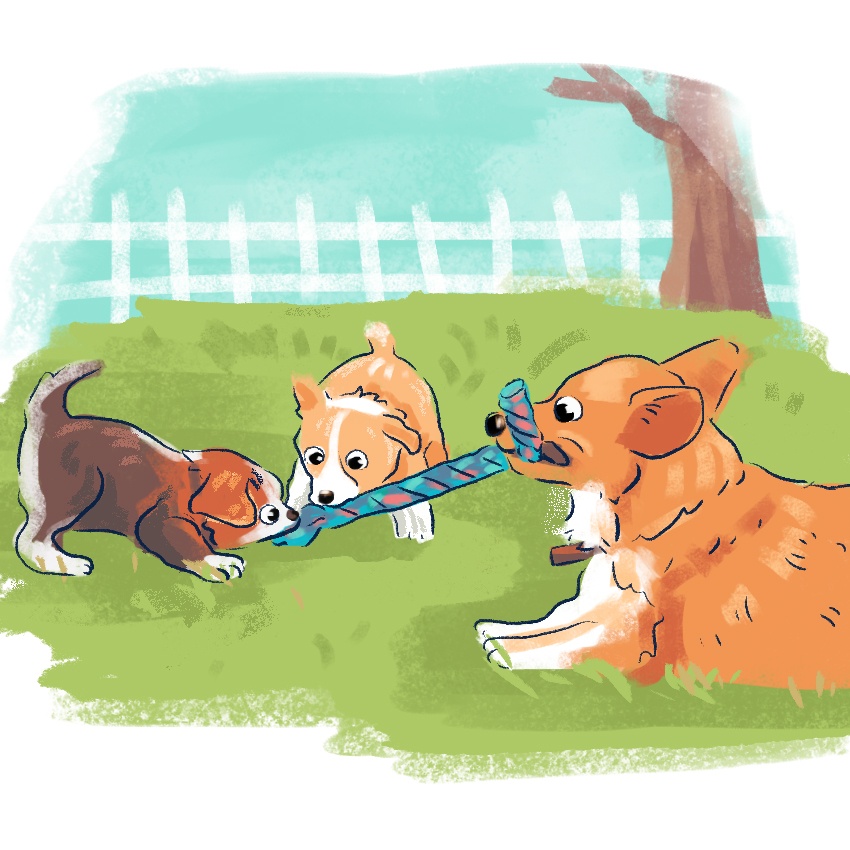
Doggie daycare is a particularly useful option because not only does it physically wear your pup out, but it also provides socialization and mental stimulation. You can also take your dog to a dog park or simply set up a play date. This is an excellent way to redirect your puppy’s destructive energy into more positive behavior.
Try A Repellent Spray
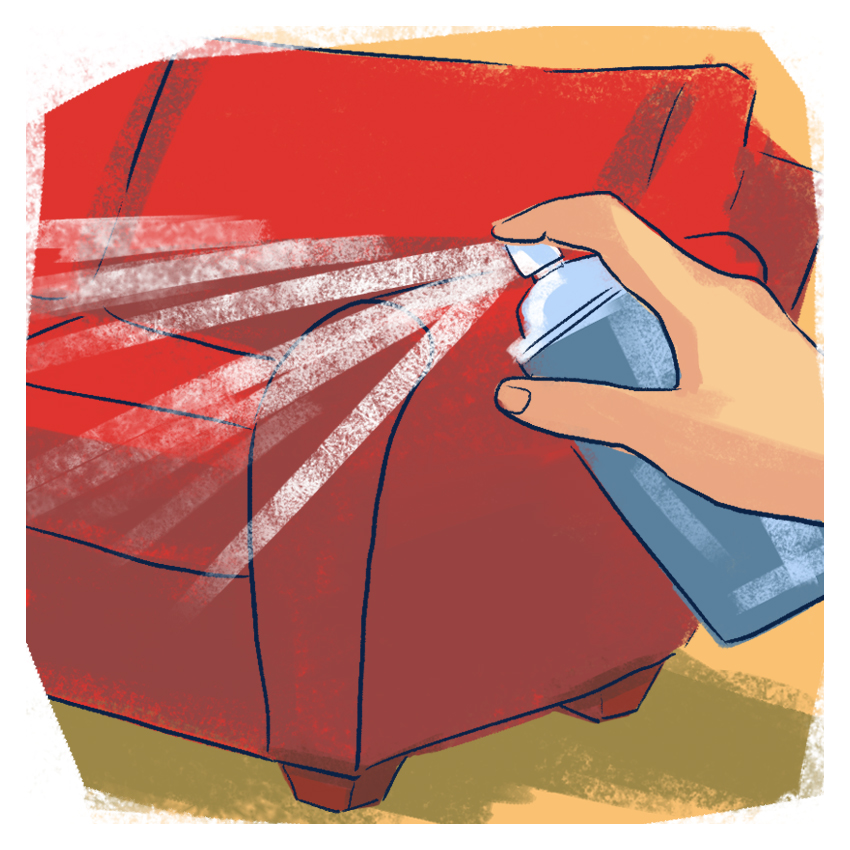
After you provide the right items to chew on, you also need to discourage your puppy from chewing on the wrong items. Some of these things simply can’t be moved out of a puppy-proofed room, like a couch or kitchen table.
Buy a chewing deterrent spray and apply it to items that you don’t want your puppy to touch. This isn’t a permanent solution, mind you — your pup will eventually have to learn what he can and can’t chew. However, it can help the process along (and save your belongings).
Tackle Separation Anxiety
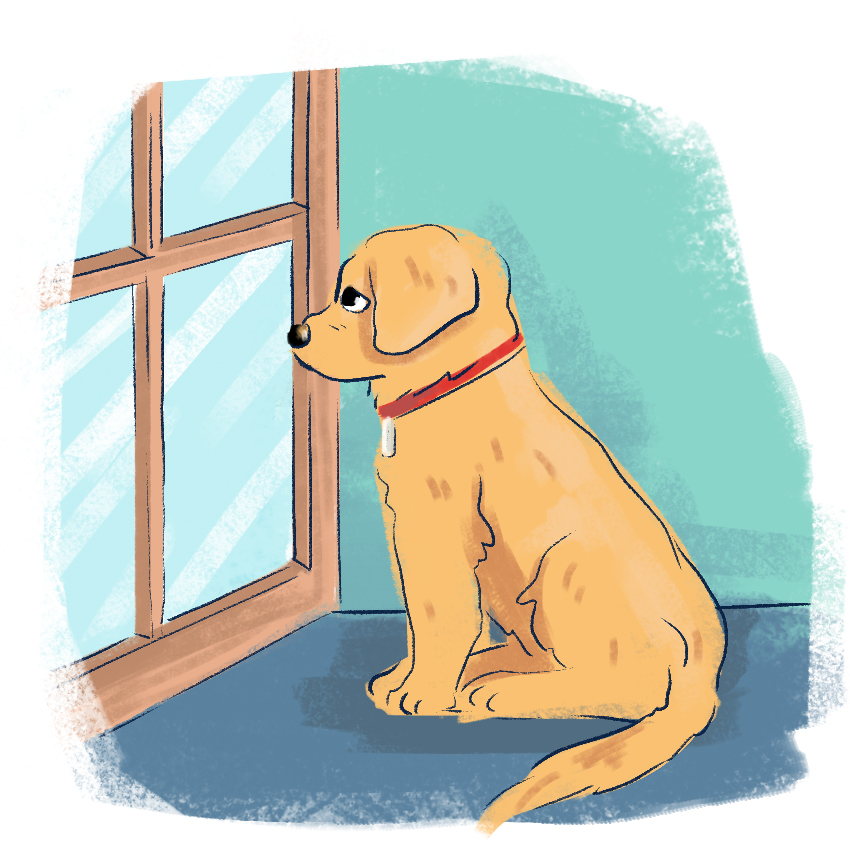
If your dog usually destroys your things when he’s left alone, he may have separation anxiety. He’ll likely display other signs of separation anxiety, too — like having accidents inside and being restless.
If that’s the case, you must tackle the root problem — the separation anxiety itself. The ASPCA recommends teaching your puppy to associate your departure with yummy treats. When you go, leave him with a high-value treat that will take him at least 20 to 30 minutes to finish, like a Kong. Only allow him to have this treat while you’re gone. You may also need to gradually practice leaving your puppy for longer and longer amounts of time, starting with very short separations and increasing from there.
If your puppy’s separation anxiety is severe, it’s important to call a professional for help, as some training tactics might inadvertently make things worse.
Don’t Let Your Puppy Roam Free
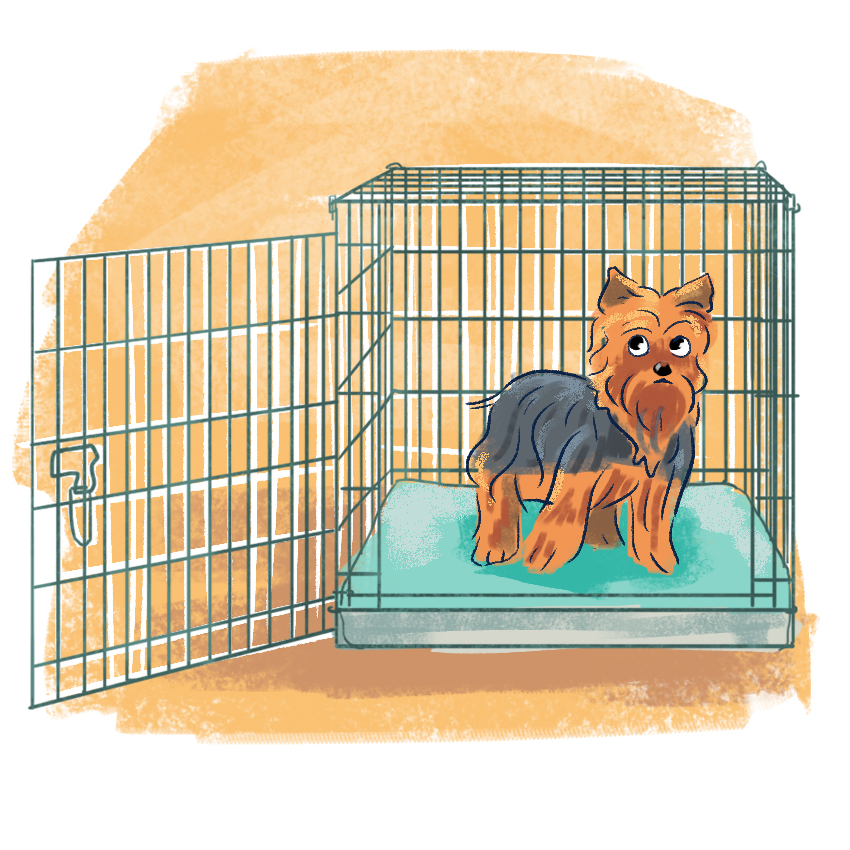
You should never leave your dog unsupervised until his chewing behavior is completely under control. When you can’t supervise your dog, leave him in a confined and puppy-proofed area. If your puppy is crate trained, leave him in his crate. Make sure to provide plenty of water and the right chew toys during this time.
Redirect Your Puppy
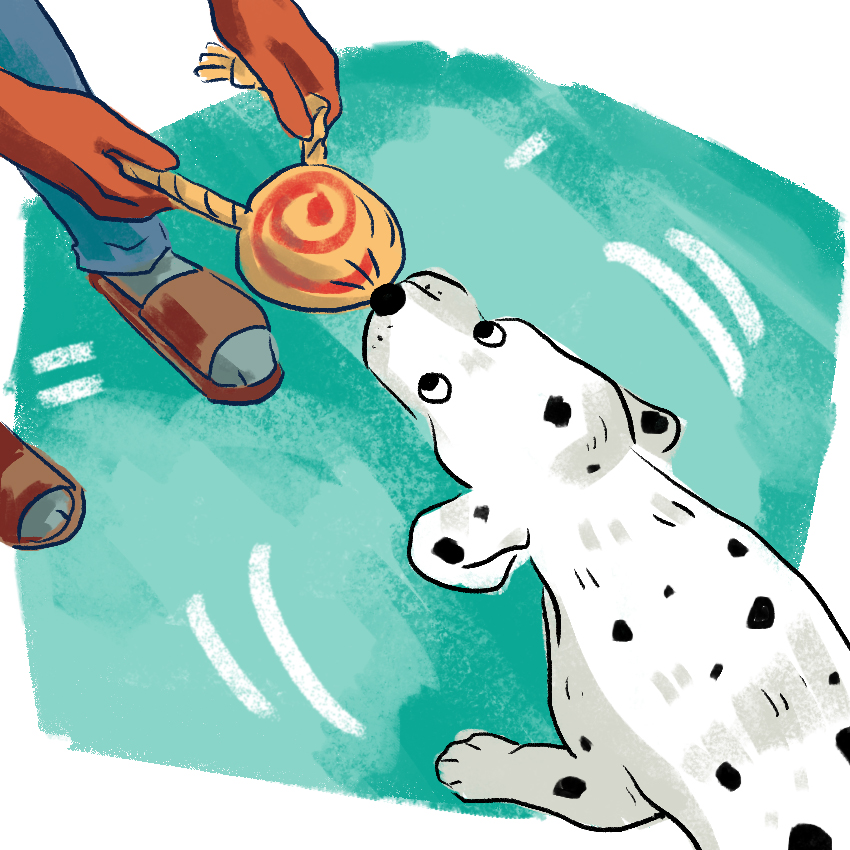
If you catch your puppy in the act, interrupt the behavior with a calm, firm command, like “No.” Remove the off-limits item and replace it with something that you do want your dog to chew. When he’s fully focused on the right toy, praise him for doing the right thing.
If you discover a destroyed object after the fact, it’s unfortunately too late to turn that into a teachable moment. Your puppy is not able to make the connection between his behavior from 10 minutes ago and your current frustration. This is why it’s important to supervise your puppy, and to keep him confined when you can’t.
Reward Positive Behavior
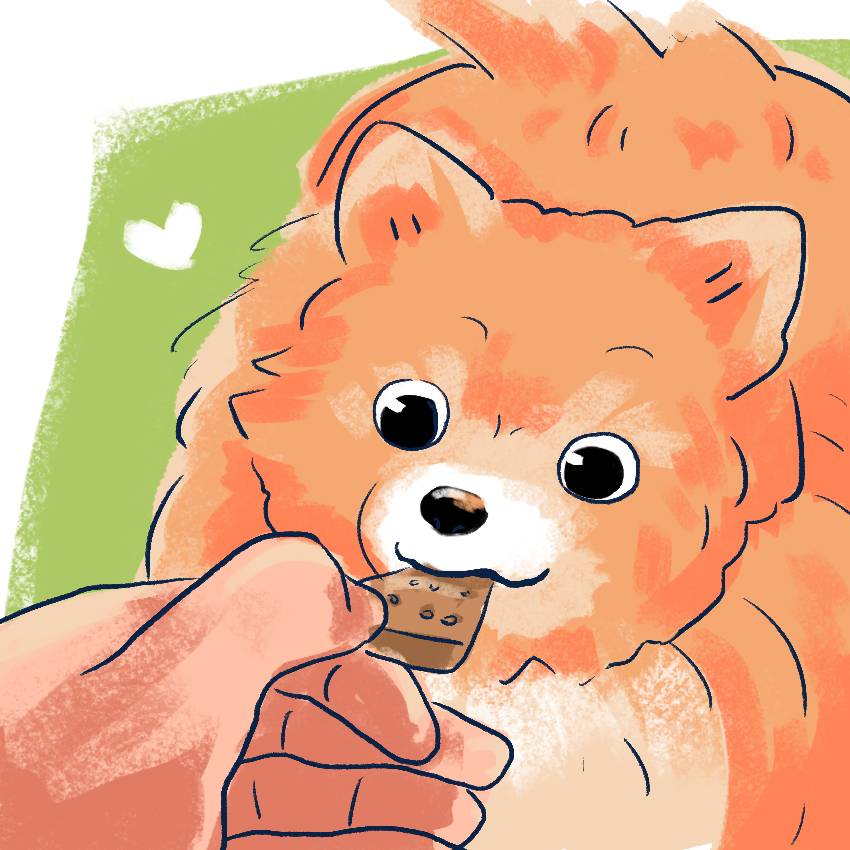
Never shove your puppy’s nose into the ruined object, spank him, or put him in his crate to punish him — these are all counterproductive responses that will not yield the behavior you want.
Instead, you should always focus on praising your puppy for doing the right thing, rather than punishing him for doing the wrong thing. Most dogs are heavily motivated by positive rewards like treats, pets, or play time.
Don’t Send Mixed Messages
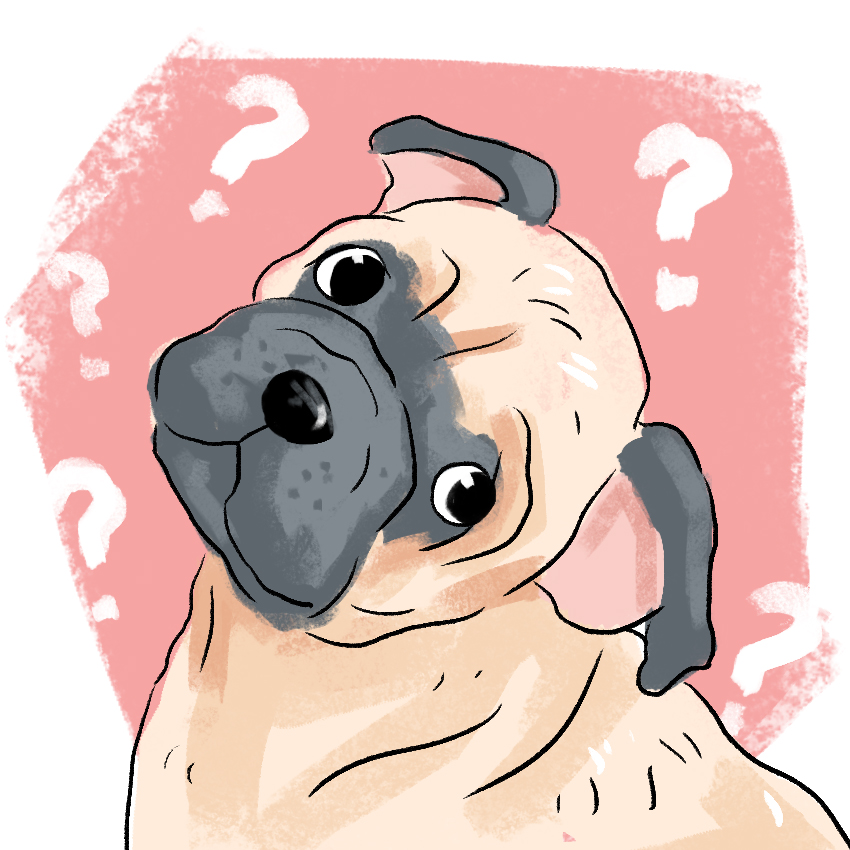
The more consistent you are, the less time it will take to train your puppy to do the right thing. Avoid sending your puppy mixed messages, like redirecting him at some times but not other times. Do not offer your puppy chew toys that resemble inappropriate items, like old socks or shoes. Again: Set your puppy up for success.
Be Patient
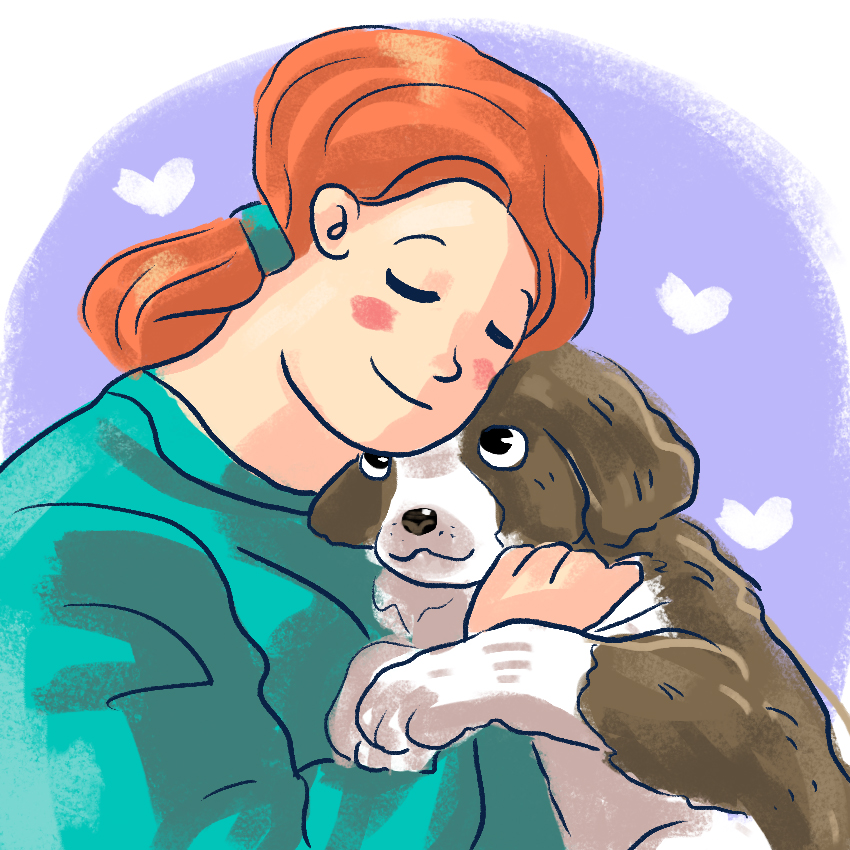
All puppy owners can expect some level of frustration and, yes, destruction, while their pups are still young — it’s inevitable. Be understanding with your puppy. He’s doing his best and, with your patience and help, he’ll get the hang of things eventually.

